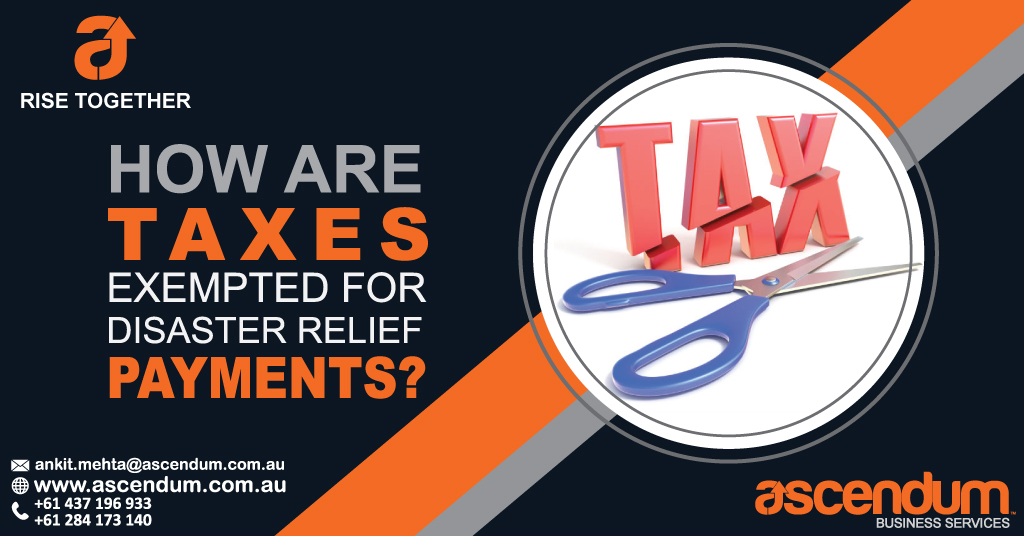
How Are Taxes Exempted for Disaster Relief Payments?

After several discussions with the federal government, the federal government has made amendments to the disaster affected people. The government has decided on the disaster relief payments for all the individuals and businesses being impacted by the devastating bushfires and other similar natural disasters. This decision would make every dollar to be paid for the affected people. Also, the businesses and the primary producers are also supportive of the aid to be provided and assisting in the cause of the livelihood rebuild.
The Federal Government made several changes for the disaster relief payments which is being received by the individuals as a result of the 2019-20 bushfires tax-exempt.
The following parameters would be considered to assess the are non-assessable and non-exempt income groups:
- Government support payments to volunteer firefighters with concern to 2019-20 bushfires
- All relief and recovery payments and benefits provided by Australian governments in relation to the 2019-20 bushfires.
- Payments including the beneficiaries of Disaster Recovery Allowance and States or Territories in relation to bushfires under the Social Security Act 1991 and Disaster Recovery Funding Arrangements 2018 respectively.
If the tax-payers are identified into the impacted postcodes and want the benefits of exempted taxes, there are automatic payment methods that need to be applied without any deferrals. There are automatically deferred income tax, activity statement, self-managed super fund (SMSF), fringe benefits tax (FBT) and excise return lodgments along with their associated payments until May 28, 2020.
What is the support that is available with ATO?
With ATO, the tax-payers would be able to:
- Get extra time for debt repayment and lodgement of tax forms such as activity statements.
- Assist for finding the lost tax file number (TFN) while identifying the individual’s identity viz. date of birth, address and bank account details.
- Re-issuing of income tax returns, activity statements, and assessment notices.
- Assist in re-construction of tax records which are either lost, damaged, or destroyed in the bushfire.
- Perform prioritization of the owed refunds.
- Payment plan set up for a tailored plan as per the circumstances which may include an interest-free period.
- Penalties remittance or interest charged during the bushfires affected period.
- Provide more time to meet the SMSF lodgement and payment obligations.
- Make a refund at the time of lodgement and use the reduction to pay down the debt.
Tax and superannuation audits
If the tax-payers are included in the identified impacted postcodes and would be subjected to the audit process, the accounts would be temporarily suspended. In case the members wish to continue their audit, they need to contact ATO or ask any audit officer for further assistance. In case of risk identification for fraud, ATO would continue reviewing prior to any refund issue.
Large tax withholders
Payment and lodgment deferrals for people in bushfire impacted postcodes don’t apply to large withholders. Large withholders are those who have previously withheld more than $1 million tax annually or are part of a corporate group that has.
Prioritizing refunds
In the case of business or residential address being amongst the bushfire impacted postcodes, ATO will automatically prioritize the refunds for the applicants. There is no need to ask for the refund prioritization unless in case of the debt.
Concluding, the Federal Government is taking great pains to reduce the burden of the debt for the disaster affected people and this step is one of them.









